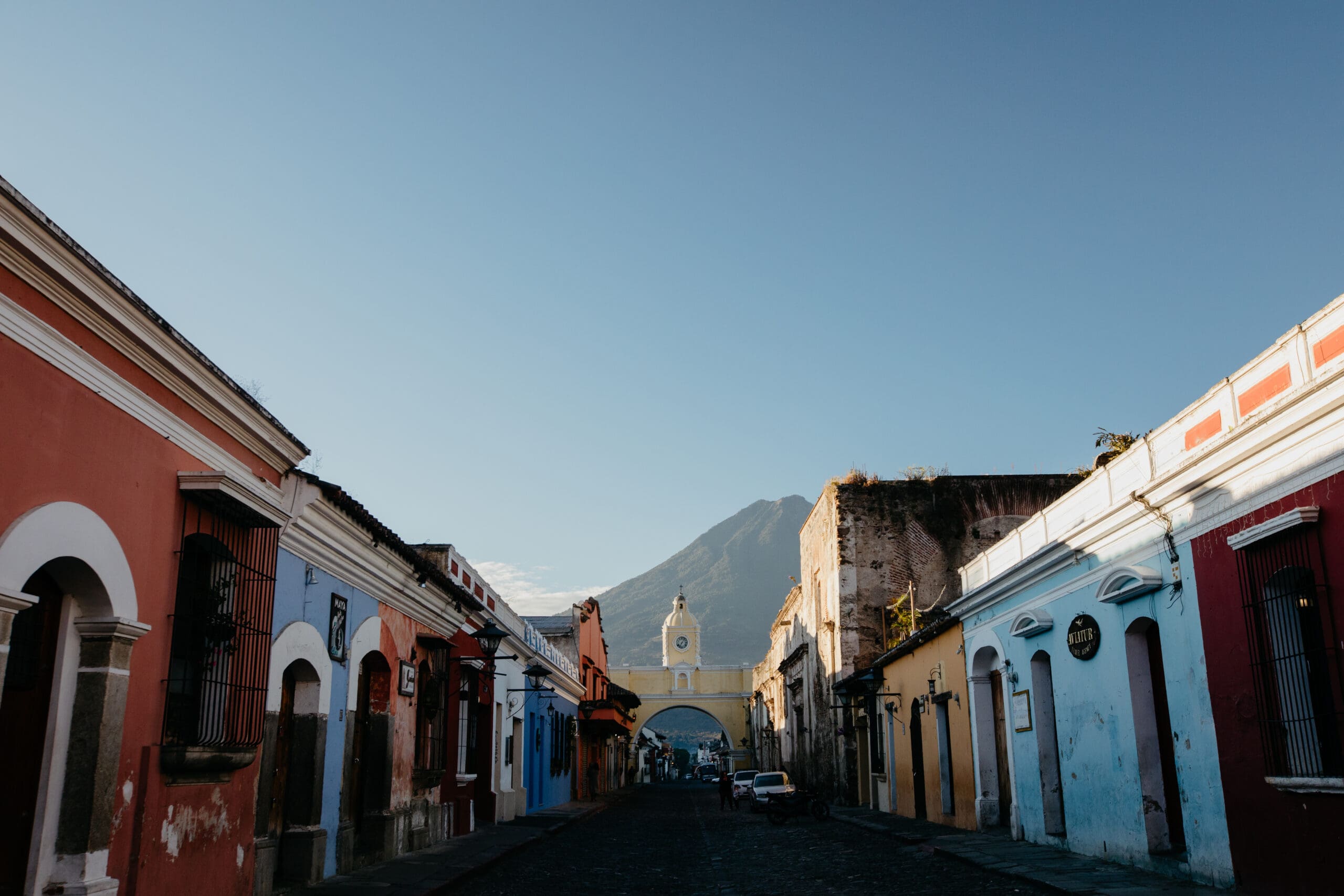The rain stopped almost as immediately as it began. It had pounded relentlessly on the tin roof for 20 minutes that afternoon; it had carved brown rivers into the gravel road surrounding the base, and had caused the campus chickens to huddle in a disgruntled heap underneath the mango tree. As the downpour softened into a gentle drizzle, the sun poured out its brightness onto the soggy earth, bathing everything in liquid gold. “There has to be a rainbow,” EmmaLea said, grabbing her phone in hopes of documentation. Sure enough, if you wandered out from beneath the patio and faced South, a radiant bow was visible, emerging victoriously from the retreating grayness.
Thousands of years ago, the first of this phenomenon imprinted itself into an exhausted sky. This sky had been the element of God’s wrath, releasing supernatural torrents of water to flood the earth. I am talking about the story of Noah’s ark, one of the most popular subjects of Sunday school. You have probably heard the story of how the earth was wicked, so the Lord decided to destroy all of mankind, except Noah, who was righteous. So Noah built an ark of wood, animals boarded it two by two, and he and his family had a year-long quarantine while the floodgates of heaven were opened and God’s creation extinguished. (Genesis 6-9) It’s a story that sounds uncharacteristically cruel for a loving God. It makes the listener question the integrity of our Creator. I’ve been there too, the place in a Bible study where a story seems contradictory to what we know of God. But then, I re-read verse 6: “And the LORD was sorry that He had made man on the earth, and He was grieved in His heart.” Our God was sorry, our God was heartbroken. Is it possible for the timeless, all-knowing God to regret? Is it possible for the all-powerful God, the One who spun the stars into alignment, the One in whom we live and breathe and have our being, to feel pain?
The answer is yes. But the pain of God is not like our human pain. Our pain is involuntary, it comes without our consent and influences our decisions. We are mastered by pain. Pain, when it comes, defines us. It is all we think of when it is happening. But God is not limited by the pain He feels. Pain cannot enter God’s heart without His admission, so why would He allow the agony of rejection to infiltrate His heart? When God made mankind, He was aware of our tendency to sin. He knew that we would try to hurt Him with our transgression. Our greatest weapon against God’s love is disobedience. It hurts Him. But this is a pain He chose; He knew that the price of loving fallen creatures was inevitable heartbreak. He is not a stoic slaughterer who creates for the purpose of destruction, He is a regretful father who allows Himself to be injured by our iniquity. Our God feels pain, He cried for His wayward creatures, and His tears flooded the whole world, washing away the stains of sin with torrents of God-sized grief.
But floating atop the sea of destruction, was an ark of cyprus wood containing a righteous man who found grace He didn’t deserve. Noah was not perfect, but just like us, He was justified by grace through faith. (Hebrews 11:7) God’s plan was always deliverance. Even though “every inclination of the human heart is evil from childhood,” (Genesis 8:21) God would be glorified through collecting the fragments of our souls and piecing them back together until they resembled His own image again. He reserved a remnant, one righteous man, so that the Savior could be born through a bloodline unpolluted by the sins of Noah’s age. The Savior had to be born so that Satan could not keep his grisly grip on God’s precious creation. The Savior, Man of Sorrows, who Himself took up our pain and bore our suffering, was pierced and crushed and afflicted. (Isaiah 53) He knew what love for man would cost Him, and He paid it, His great big heart would break and His perfect body would scar.
Why does God feel pain? Because His love for us was so great that He was heartbroken by our disobedience. But the pain He felt did not keep Him from the plan of redemption. He saved mankind through Noah and painted His promise in the air. The rainbow stretched across the hopeful sky, aiming its arrow towards heaven. Man would not bear the weight of sin; no, there would be a divine Deliverer who would die in our place. Thousands of years after the first rainbow appeared, the LORD Himself descended onto the earth which He ruled, and felt the pain of being human. Noah’s descendants would fall short of His requirements, but the eternal solution came as Jesus Christ. Jesus, who chose the pain of loving, who chose the pain of dying. He was struck by the rainbow’s arrow, and died so that we wouldn’t have to. The pain of God. What a sweet promise we are given by a God who understands suffering because He Himself experiences it.




